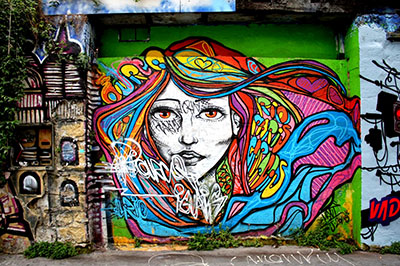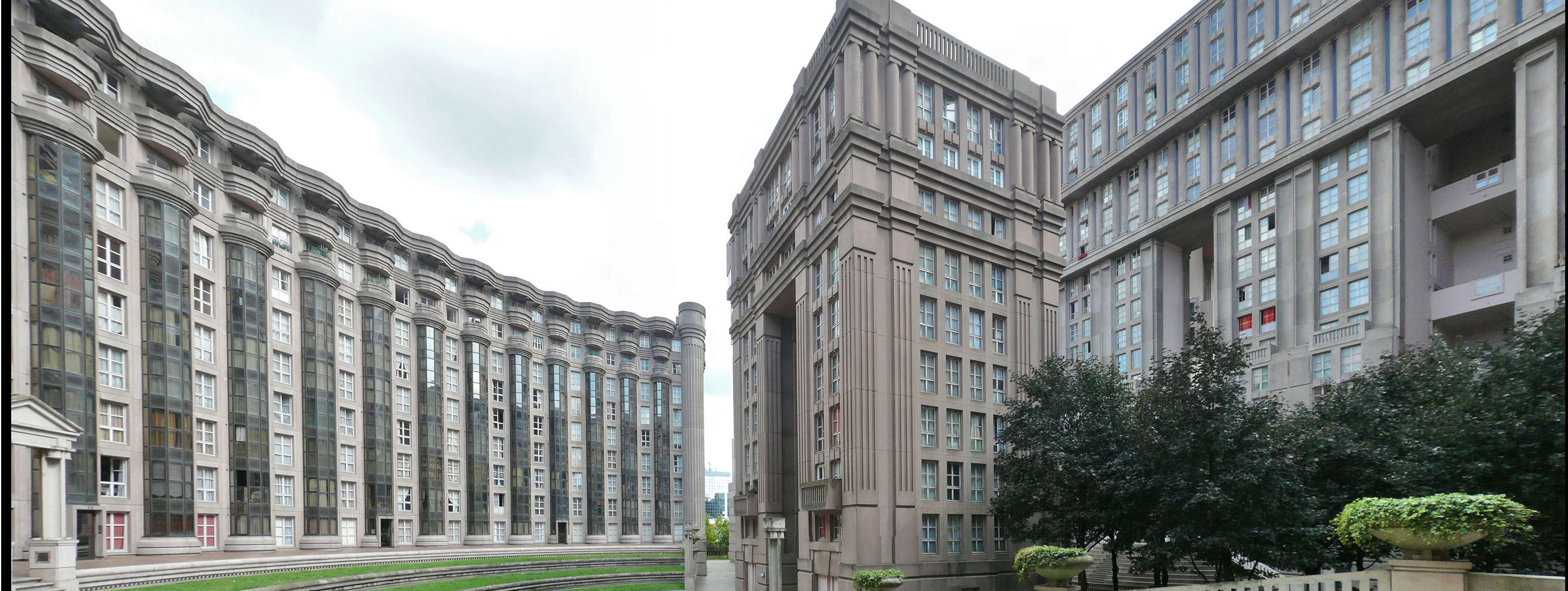 Hidden gems in Seine-Saint-Denis
Hidden gems in Seine-Saint-Denis Treasure hunting in the "Nine-Three"
The Saint-Denis basilica, the flea market in Saint-Ouen, dense associative activity and highly creative urban culture... the Seine-Saint-Denis region has a rich and unknown heritage. Wael Sghaier, who explored the region during four months, is taking you on a guided tour.
A strong associative life
The Seine-Saint-Denis is supposedly ill reputed and unloved, but Wael Sghaier's adventure utterly destroys all the clichés. In 2014, he started a 4-month trip to explore the region and discover hidden gems. In his blog, Mon Incroyable 93 ("My amazing 93", 93 being the administrative number of the region), he tells his tale and lists his findings. He stresses the strong associative life of the region: "You meet so many associations highly committed to local life".
He talks about the frères Poussière ("Dust brothers"). They are established in Aubervilliers in a theatre from the 30's, and they work to renovate the location. They organise various socio-cultural projects: concerts, theatre plays, housings for artists, community workshops... You will find them all in a collective that resurrects the guinguettes d'Aubervilliers (guingettes were very popular open-air dances in the first half of the 20th century).
The Frères Poussière are not the only ones to give life to areas beyond the "périphérique" ring road of Paris through ambitious cultural willpower. In Saint-Ouen, artists took over a former industrial site in 2000 to create Mains d'Œuvres ("Workforces"), a creation space.
Urban cultures, classic culture
Seine-Saint-Denis also offers many impressive festivals. Banlieues Bleues has become a must for jazz lovers: the event is held every spring throughout the region in the form of concerts and "musical actions", projects of art education for the general public.
Several other cities deploy the same scheme through the Hip Hop Tanz festival. Hip Hop Tanz is the offspring of an event first created in Berlin. It was first held in 1999, in a pioneer region for urban cultures. As a proof, Aulnay-sous-Boi organises the hip-hop festival H20, and the association Art en ville invited about 50 street artists to create ephemeral piece of art on the walls of the fort of Aubervilliers in 2014.
From the Middle Age to Science Fiction
Seine-Saint-Denis has a centuries-long architectural heritage. The Saint-Denis Basilica stands on an equal foot with the best churches of Paris. The most important kings of French history are buried in this typically gothic monument. The recumbent statues are a masterpiece of mortuary sculpture.
The visit of the region also holds other surprises. The "poudrerie" (gunpowder factory) in Sevran was originally built by Napoleon III and now holds a national park of 137 ha. On the banks of the Ourcq canal, the great windmills of Pantin are a vivid memory of the early 20th century, when about 190,000 tons of flour were grinded when the company flourished the most.
The Espaces Abraxas and Arènes de Picasso areas in Noisy-le-Grand are big architectural ensembles that are more modern and highly representative of typical "new cities" utopias. Spanish architect Rodrigo Bofill designed the areas in 1980. Inhabitants of the areas report a mild situation: life is not easy there, as stresses Wael Sghaier. But, when the city council decided to destroy some parts of it, hot reactions sprouted.
Nonetheless, the postmodern pink-coloured building is a source of inspiration for filmmakers. Terry Gilliam used the building to shoot his cult movie Brazil in 1984. Some thirty years later, actress Jennifer Lawrence played there in the last film of the "Hunger Games" saga in 2014.
©Marie Gautier / © Klaas Vermaas

